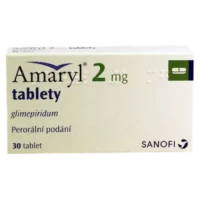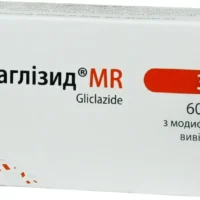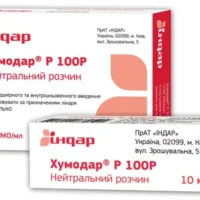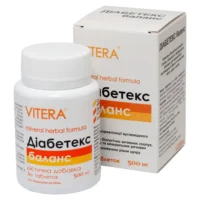Description
Farmasulin H (Human Insulin) 100ME/ml. 3 ml. №5 Cartridge
Composition
Farmasulin H contains human insulin at a concentration of 100ME/ml. The formulation also includes stabilizers and preservatives to ensure the stability of the insulin solution.
Mechanism of Action
Farmasulin H acts by promoting the uptake of glucose into cells, facilitating energy production. This mechanism helps to lower blood sugar levels and prevent hyperglycemia, thereby reducing the risk of diabetic complications.
Pharmacological Properties
Farmasulin H is a synthetic form of human insulin that mimics the natural hormone’s action in the body. It regulates glucose metabolism effectively, aiding in the control of blood sugar levels.
Indications for Use
Farmasulin H is indicated for the management of diabetes mellitus to regulate high blood sugar levels. It plays a crucial role in controlling glucose levels to prevent complications associated with uncontrolled diabetes.
Contraindications
Farmasulin H is contraindicated in individuals with a known hypersensitivity to insulin or any of the components present in the product. It should not be used during episodes of hypoglycemia.
Side Effects
The use of Farmasulin H may lead to potential side effects such as hypoglycemia, injection site reactions, and allergic responses. Patients should be aware of these possible adverse effects and seek medical advice if they experience any concerning symptoms.
Usage Instructions
Patients should administer Farmasulin H subcutaneously as directed by their healthcare provider. The dosage may vary depending on individual requirements and should be adjusted accordingly. Proper injection techniques should be followed for optimal results.
Benefits Compared to Analogues
Clinical studies have demonstrated that Farmasulin H offers comparable efficacy to other human insulin products. The №5 cartridge presentation provides convenience for administration, enhancing patient adherence to insulin therapy.
Suitable Patient Groups
Farmasulin H is suitable for use in various patient populations, including children and the elderly. However, individualized dosing adjustments may be necessary based on age, weight, and other factors affecting insulin requirements.
Storage and Shelf Life
Farmasulin H should be stored according to the manufacturer’s instructions, away from direct sunlight and extreme temperatures. It is essential to adhere to the recommended storage conditions to maintain the product’s stability and potency. The shelf life of the product should be checked before use to ensure efficacy.
Packaging Description
The Farmasulin H product is available in a №5 cartridge presentation, providing a convenient and user-friendly option for insulin administration. The packaging is designed to ensure proper storage and ease of use for patients requiring regular insulin therapy.
Clinical Evidence and Proven Effectiveness
Studies have shown that Farmasulin H effectively manages blood glucose levels in diabetic patients. Its ability to mimic endogenous insulin production helps in regulating sugar metabolism and achieving glycemic control. The clinical evidence supports the efficacy and safety of Farmasulin H in diabetes management.





